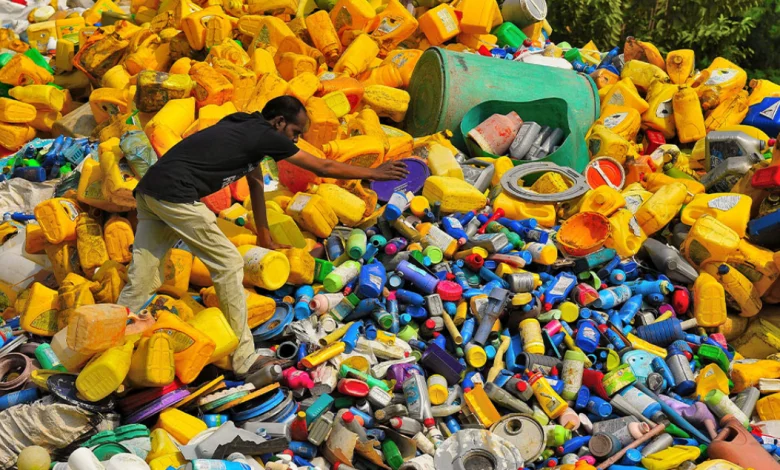Plastic waste seen as economic goldmine in TZ’s recycling push

DAR ES SALAAM: STAKEHOLDERS have been urged to seize the growing economic opportunities in the waste management sector, particularly in plastic waste recycling not only to protect the environment but also to generate income and employment.
Speaking recently during World Cleanup Day celebrations in Dar es Salaam, an Environmental Officer from the National Environment Management Council (NEMC), Mr Eston Waliha noted that there is untapped potential in plastic waste recycling and called for more participation from both individuals and businesses.
“Plastic waste is a resource. Many factories are already processing it into useful products, so there’s no reason for it to be littered on our beaches,” said Mr Waliha during a beach cleanup exercise held at Silversands Beach.
“For instance, there’s a factory in Kibaha that processes plastic bottles into synthetic cotton, a product that didn’t exist before. What we need now is for citizens to sort and separate waste to make it easier for recyclers to access these materials. There’s still a strong demand for manpower in the waste management sector.”
During the event, Team Leader from the environmental conservation group Sanamare, Mr Joshua Mkoma revealed that the beach cleanup led to the collection of more than 350 bags of waste, weighing approximately 2,835 kilogrammes (nearly three tonnes), with plastic waste being the most common.
The cleanup activity, held under the theme “Beyond the Shoreline”, brought together various institutions and 130 students from secondary schools in the Dar es Salaam region to promote environmental conservation and ocean health.
ALSO READ: Govt reaffirms commitment to tackle plastic waste
“The marine environment is vital. Oceans provide food, support livelihoods and play a crucial ecological role,” said Mr Mkoma.
“One alarming study warns that by 2060, ocean plastic waste could outweigh fish if current trends continue. That’s why cleanup efforts like this are so important.”
Mr Carlos Mdemu from Mazingira Connect, another environmental organisation involved in the campaign said that sustainable environmental initiatives must be rooted in community participation.
“Many areas such as beaches, rivers and open spaces are often neglected because they are perceived as unowned,” he explained.
“That’s why we are working to raise awareness, especially among schoolchildren, so that the message spreads to families and the wider community. Early education is key to nurturing a culture of environmental responsibility.”



